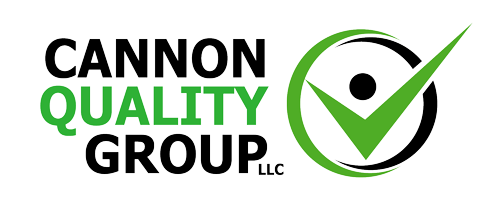 Last month our team collaborated with the folks at MasterControl to present a lunch and learn webinar focused on the implementation of a Quality Management System (QMS) for MedTech Start-ups.
Last month our team collaborated with the folks at MasterControl to present a lunch and learn webinar focused on the implementation of a Quality Management System (QMS) for MedTech Start-ups.
 Learn about the critical questions MedTech start-ups need to consider when implementing a Quality Management System (QMS) in our latest blog post. Discover insights on QMS timing, eQMS solutions, and the importance of the QMS in ensuring compliance and customer satisfaction.As the QMS is a crucial aspect of a MedTech company, start-ups must get it right the first time. In this blog post, we’ll summarize some of the key insights from our presentation.
Learn about the critical questions MedTech start-ups need to consider when implementing a Quality Management System (QMS) in our latest blog post. Discover insights on QMS timing, eQMS solutions, and the importance of the QMS in ensuring compliance and customer satisfaction.As the QMS is a crucial aspect of a MedTech company, start-ups must get it right the first time. In this blog post, we’ll summarize some of the key insights from our presentation.
When to Implement QMS?
Timing is critical when considering QMS implementation. Start-ups need to consider:
- Device classification
- Design
- Development stage
If a start-up hasn’t determined these yet, a QMS could handcuff development with burdensome, unnecessary requirements. However, waiting too long could result in scrambling to recreate documentation. Therefore, it’s essential to get the timing right.
When to Engage an eQMS solution?
Electronic QMS systems are a great way to digitally capture many of the requirements of a QMS. MedTech start-ups are faced with the question of spending limited resources on potentially unnecessary eQMS costs. Some eQMS solutions come as a package deal and provide more features than a start-up needs. This automation won’t add value.
Start-ups should consider:
- What problem would eQMS solve?
- Who and what are the makeup of the company and product?
- When are company and product milestones?
Leadership should implement an eQMS when business and product objectives will benefit. This will ensure company growth is not handcuffed and quality is not compromised.
Is a QMS necessary if I have an eQMS?
Perhaps your MedTech start-up has already engaged an eQMS and now you’re wondering whether you need anything else for QMS compliance. Unfortunately, an eQMS doesn’t take the place of a QMS.
While an eQMS alone cannot fully meet an organization’s quality and regulatory needs, eQMS solutions make compliance easier and reduce the potential for errors.
Conclusion
No matter the size, quality management systems are made of processes (eQMS, analysis tools, etc.) and resources (people). Ultimately, the QMS works as a cyclic process which connects these processes through documentation and records.
After delivering the training, CQG Director of Quality West, Jeff Flint advised, “Quality must have a voice at the table and should be flexible and inventive to meet the needs of a startup company. Good quality can’t be brainless quality.”
When right-sized, the QMS will bring the most benefit to your customers by ensuring they get the right product at the right time and right cost. MedTech start-ups need to implement a QMS that is tailored to their needs and goals to avoid costly mistakes and ensure compliance.
Interested in learning more about right-sizing your QMS? Let’s chat! Email us at marketing@cannonqg.com.

